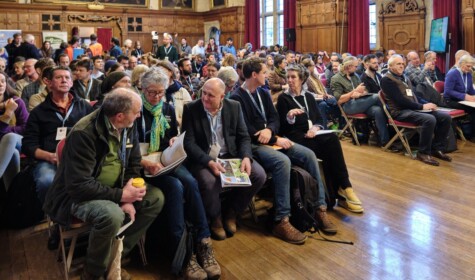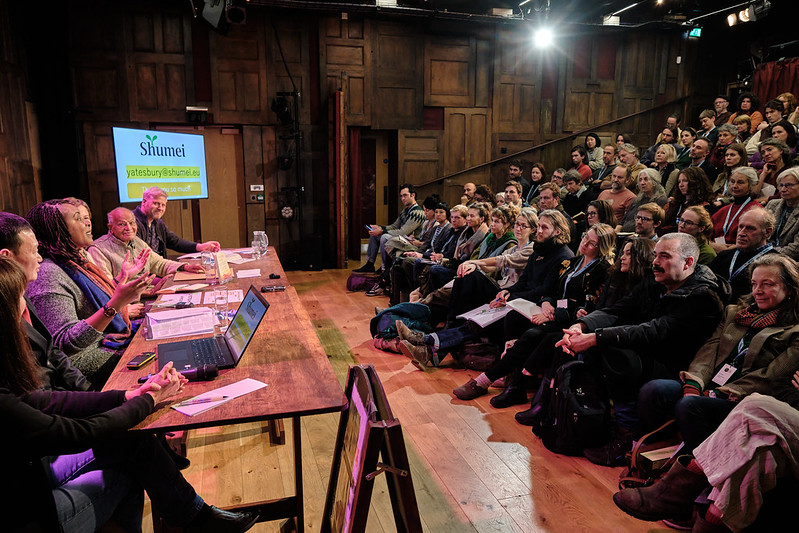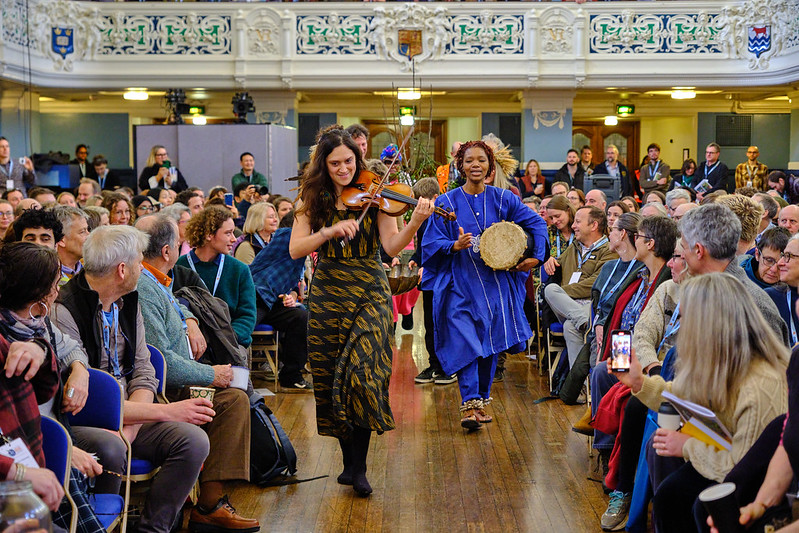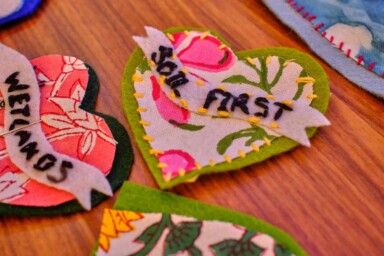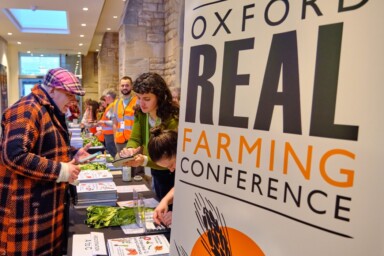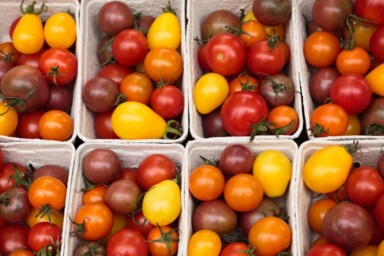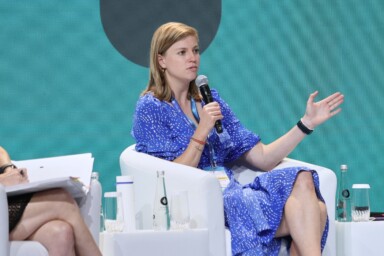The Oxford Real Farming Conference (ORFC) has flourished since it began in 2010, now drawing a huge diversity of people from across the world of food and farming. We caught up with some of this year’s attendees to get a better sense of why they were at the conference and what they had to say about the event.
We hear from six of the attendees, who kindly answered our questions, despite being accosted at random (truth be told, we knew a few of them, but most were new faces). Here’s what they had to say.
Pearl Costello, Food Sense Wales
What brings you to the ORFC? Is this your first time or do you come every year?
This is my first time at the ORFC. I work for Food Sense Wales which is an organisation influencing how food is produced and consumed in Wales. So, with sessions on a holistic approach, agroecology and food systems transformation, it really makes sense to be here and see what is happening in the sessions within Wales, and in the broader UK and global context as well.
What were your ‘go-to’ sessions?
Well, I didn’t get to go to any of my ‘go-to’ sessions – they were all full when I got there! Instead, I went to ones that were available and those were all very policy focused, particularly farming policy focused, and I think that was really useful – I got so much from them and it was really great to hear detail on the Sustainable Farming Scheme, and things that are happening in other nations in the UK in relation to farm policy and the knotty questions that come up.
Was there anyone who inspired you?
There was someone that stirred up a lot of controversy in the audience – it was inspiring to see people not shy away from the more divisive or controversial issues and discuss them in a really productive way.
What’s your biggest take-away from the conference this year?
My first impression of it was that it was a lot bigger than I was expecting in terms of the numbers of people and the volume of sessions and the passion and energy – it was really energising and engaging to see so many people involved, lots of people that I haven’t met before and lots of new faces and different groups, having that diversity of voices and faces in the room.
Will any of the discussions you’ve had inform your work going forward, and if so, how?
Definitely. It’s really reinforced my desire to be linking up citizens and farmers to have dialogues and better relationships across the food system.
Sally Davies, Farmer, The Penpont Project
What brings you to the ORFC? Is this your first time or do you come every year?
This is my first time. I’ve come here because I was on a panel. We rent two farms on the Penpont Estate; we also own some ground, but part of one of our farms is in what’s called ‘Penpont Project’, which is an inter-generational project looking at increasing biodiversity on that piece of land. And I thought, well as I’m here, I may as well go to some of the talks.
What were your ‘go-to’ sessions?
My ‘go-to’ sessions this morning were regarding rivers and pollution. This afternoon, it was about Welsh farming and food. Yesterday, it was about commoning and common grazing – that was interesting.
Was there anyone who inspired you?
I thought the people in the session on rivers spoke really well; they were quick to say that we’re not ranking all farmers as polluters – it’s big business and government grants that have been pushing this agenda. What can we do with this chicken muck? Can we put it through anaerobic digestion and produce energy, like Welsh Water do? At the end of the day, yes, it does produce a lot of muck, but it is producing cheap food as well. You can buy a chicken for £6 that will feed a family of four or five. You can’t do that with beef or lamb.
What’s your biggest take-away from the conference this year?
I think even with all the people that are here, there’s still a misunderstanding, still a divide. I’m a conventional farmer, I’m a commercial farmer, I would be classed as a large farmer. I’ve looked at the way that we farm, and I think that we do come under ‘agroecological’, in a sense. There are a lot of people that feel ‘we have to have agroecological farmers’ but they’re already there – they just need to be supported. Most upland beef cattle and sheep are agroecological. A lot of farmers are already ‘agroecological’ and they don’t even know they are.
Will any of the discussions you’ve had inform your work going forward, and if so, how?
Yes, as a farmer things are going to change, and we have to look at how we’re going to change and how we stay afloat. I want to shorten the supply chain; how do we do that? We need more abattoirs. Talking about food partnerships – I’d love for our meat to go down to Cardiff to feed people. There are people producing good food and it would be good if it stayed local.
